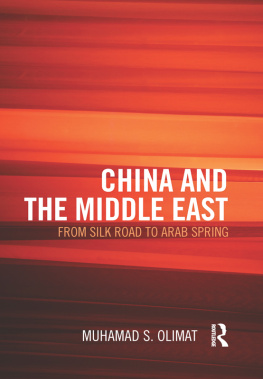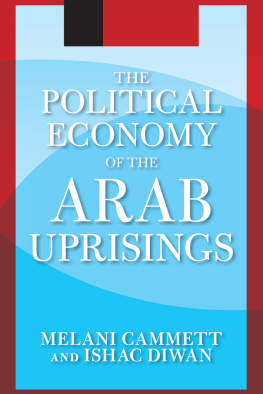First published 1983
This edition first published in 2015
by Routledge
2 Park Square, Milton Park, Abingdon, Oxon, OX14 4RN
and by Routledge
711 Third Avenue, New York, NY 10017
Routledge is an imprint of the Taylor & Francis Group, an informa business
1983 Yusif Sayigh
All rights reserved. No part of this book may be reprinted or reproduced or utilised in any form or by any electronic, mechanical, or other means, now known or hereafter invented, including photocopying and recording, or in any information storage or retrieval system, without permission in writing from the publishers.
Trademark notice: Product or corporate names may be trademarks or registered trademarks, and are used only for identifi cation and explanation without intent to infringe.
British Library Cataloguing in Publication Data
A catalogue record for this book is available from the British Library
ISBN: 978-1-138-78710-0 (set)
eISBN: 978-1-315-74408-7 (set)
ISBN: 978-1-138-80996-3 (Volume 7)
eISBN: 978-1-315-74501-5 (Volume 7)
Publishers Note
The publisher has gone to great lengths to ensure the quality of this reprint but points out that some imperfections in the original copies may be apparent.
Disclaimer
The publisher has made every effort to trace copyright holders and would welcome correspondence from those they have been unable to trace.
I presume to believe that, until mid-October 1973, few people in the advanced, industrial countries, or in the developing countries of the Third World, stopped to think of the issues and complexities involved in the control, production, management, pricing, and marketing of the oil resource. To them, oil was gasoline to feed cars with, fuel-oil to operate central-heating systems, or kerosene for the primuses to cook on in the poorer households. Then, suddenly, with steep increases in oil prices, the oil industry became a matter of general discussion, in most of its aspects, and the questions of volume of production of oil, its price, and its availability in the markets jumped to the forefront of peoples preoccupations and discussions everywhere. And as suddenly, OPEC (the Organisation of Petroleum Exporting Countries), of which probably no more than one adult out of every hundred thousand had heard before that decisive October day, was a front-page topic in every leading newspaper in the world and a prominent subject of analysis and comment in the programmes of radio and television stations at least in the advanced industrial countries.
Unfortunately, the speed with which the media took up the subject of oil pricing and production policies, and that of OPEC, was far greater than the speed with which real understanding of these policies, and of the Organisation which formulated them, was acquired. No doubt a sincere and sustained effort was undertaken by a number of newsmen, economic analysts, and politicians to acquaint themselves with the facts and intricacies of the subject of the political-economy of oil. But, judging by much of the commentary that has flowed in print and on the air since the autumn of 1973, neither the number of those seeking better understanding, nor the depth of the understanding acquired, have proved adequate to clear much of the confusion and misunderstanding that have engulfed the issues of the supply and price of oil.
Furthermore, the Arab oil exporters and their oil policies have received much criticism, and have been the central target of a massive campaign of condemnation, although they are by no means the sole owners and suppliers of oil.
It would not be far fetched to say that the singling out of the Arab exporters for criticism has been in fact the product of a complex of factors cultural, historical, political, and economic which combined and interacted, and finally led to the oversimplification that all the blame for the rise in oil prices was to be heaped on the Arab producers. It would be rare to find a Western oil consumer, even today, who realises that his government levies a tax on a barrel of oil imported and refined by his own country, larger than the producing government charges for the barrel of crude exported. It would be equally rare to find a consumer who realises that the question of the price and supply of oil is but one aspect and not the major aspect, at that of the much broader and many-sided global question of total energy with which the whole world has to contend: the availability of the various known sources of energy, the development of new sources, the finiteness and non-renewability of fossil energy, and the huge financial implications of the effort to assure humanity of energy for its future.
In brief, the Arab oil policies of the 1970s, the decade which witnessed the major changes in oil policies, need much better and wider understanding, if the confusion and condemnation surrounding these policies is to be cleared. That it is essential to achieve a much larger measure of mutual understanding between oil exporters (among whom the Arabs are important) and oil importers is beyond doubt in my mind. Deep misunderstanding can only place both parties on a course of confrontation and conflict. I submit that a course of co-operation and equitable interdependence is much more in the interest of both parties both economically and politically. Hence this book, which is hoped to serve as a modest contribution to the improved understanding without which co-operation and interdependence cannot be established.
As the reader will find out, the book is not a wholesale, undiscriminating endorsement of Arab oil policies in the 1970s. Indeed, it contains some sharp criticism of certain aspects of these policies. I wonder, in the end, if it will be the Arab oil-exporting countries or the large oil-importing countries that, on balance, will be more displeased with the book. But if it can clarify the policies it examines, and gain better appreciation by its readers of the reasoning and realities behind them, it would amply justify the work put into it.
The last chapter of the book sets out to establish that the massive, wide-ranging opportunities which the new oil policies have opened up for the Arab countries, in the national, the regional, and the international context, invoke concomitant responsibilities of great magnitude, in the same contexts responsibilities that can be discharged only if the opportunities are allowed proper scope for fruition. The examination and clarification of this dialectical relationship is hoped to improve further understanding between oil importers and exporters.
One final word is called for. I have tried my utmost to be objective and to write a balanced book. However, I must state from the start that I am an Arab and not a Martian. Therefore, I start from a position of basic sympathy with much of the reasoning and many of the considerations that have shaped Arab policies in the decisive decade of the 1970s. But it is, I hope, responsible, not undiscerning sympathy. Consequently, I run the risk of dissatisfying the critic of Arab policies who refuses to see any merits in them, as well as the supporter who refuses to see any fault in them. May this book, then, be a useful bridge between the unbending critic and the uncritical supporter of Arab oil policies.




